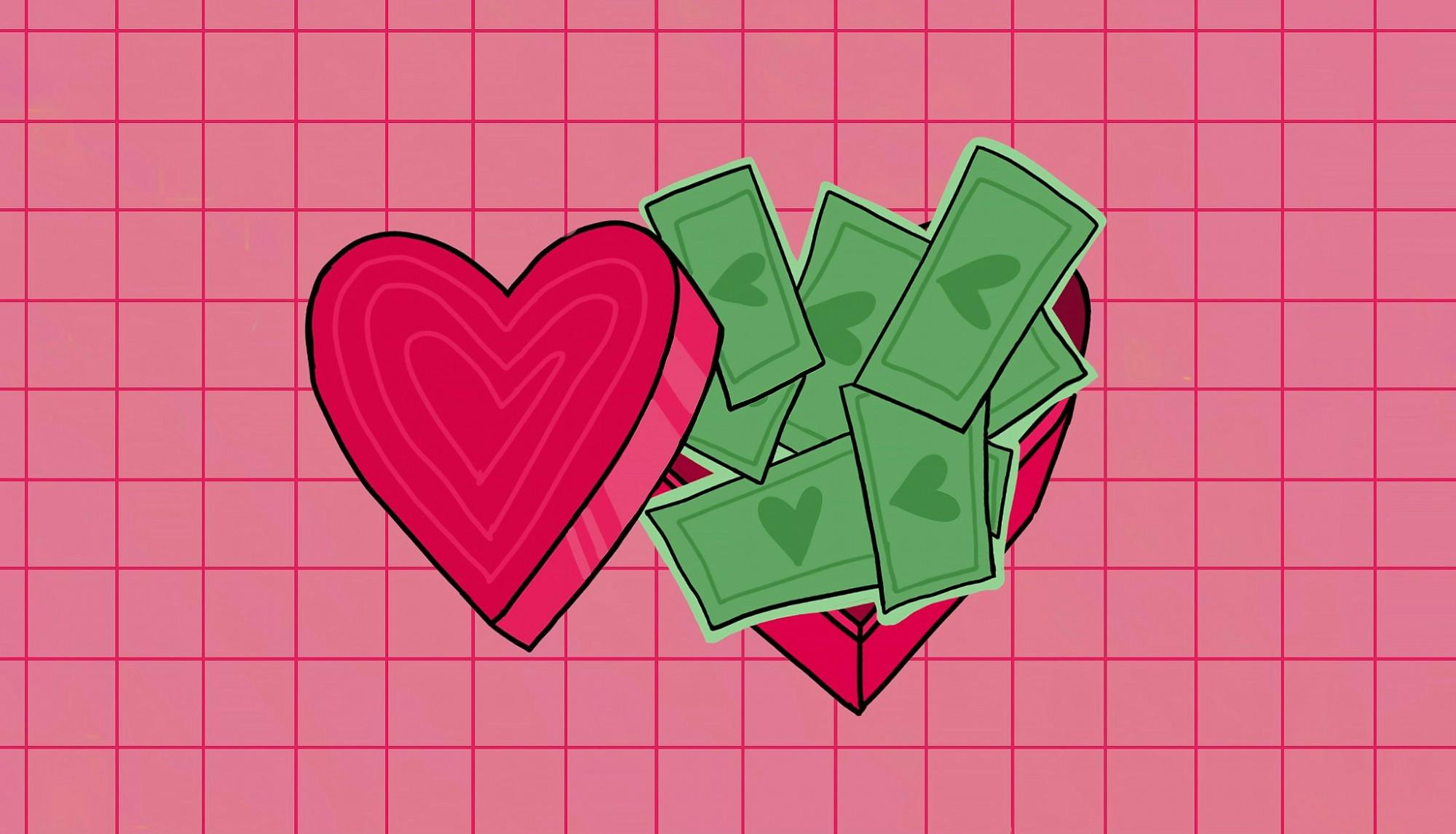As couples across America are trading heart-shaped chocolates, fragrant flowers and cheesy cards, dollar bills are simultaneously flying out of their wallets.
Valentine’s Day — the Catholic-rooted holiday in the name of St. Valentine — has become a day in which people honor those they love the most, oftentimes by spending money on them.
“It started off so long ago, and the liberation of love, but it's been so capitalized in the past, probably 100 years; yeah it's definitely more about gifts and buying than it is more about the celebration of love,” advertising management junior Alexa Martin said.
The National Retail Federation (NRF) estimated $21.8 billion will be spent on Valentine’s Day in 2021, down from 2020’s $27.4 billion holiday, which fell weeks before the pandemic greatly affected most of the country.
“I think it's probably sort of the economist angle on it is that it's one of the ways to show someone if you're in a new relationship that you love them, or like them is sort of by spending a lot of money,” economics professor Jeff Ackermann said.
Of 235 Michigan State University students who participated in a survey on Valentine's Day spending, 67.7% planned on celebrating Valentine’s Day this year.
Consumers are expected to spend an average of $164.76 this year, according to the NRF. However, 67.7% of those surveyed were planning to spend under $50.
“I don't think (Valentine’s Day) was created with the intent of making money, but I do agree that companies will take advantage of it to promote their companies and make more profit from people,” computer science sophomore Alexis Tochiki said.
The average person is spending $32 less this year due to the pandemic, and college students are celebrating less.
“In college, students just generally have less money, I would say is part of it," Ackermann said. "And then there's hopefully, maybe, there's less of an expectation, right? ... So that you wouldn't feel this, they don't buy a fancy gift, you won't think they don't like you or something like that, if it's understood that both of you are in a phase of your life when you're not earning a lot of money.”
According to the survey, 55.8% of students have never spent over $50 on Valentine’s day.
As one of the biggest consumer holidays, Valentine’s Day does have an effect on the economy by boosting up business for restaurants and stores.
“As long as you spend, it will contribute into the economy to hopefully go up, but if you're not spending anything, that's a padlock on businesses," economics senior Anthony Bowers said. "Workers aren't going to be getting paid, or they will most likely get laid off."
Students are primarily spending their money on significant others, friends and are beginning to spend more money on themselves as well.
They also mostly spend their money on traditional gifts, candy and food.
Support student media!
Please consider donating to The State News and help fund the future of journalism.
Those looking to buy for their significant others often use the holiday as a way to signal their feelings rather than saying them.
“It's easy to tell someone you like them," Ackermann said. "It's more difficult to come up with a gift that they act that is thoughtful, and they actually like. So, it was probably more indicative that you actually really liked them if you spend time thinking of the next gift.”
Companies have begun to heavily commercialize themselves to the holidays in order to appeal to consumers.
“The same reason businesses do anything is to increase their profits," environmental studies and sustainability sophomore Piper Guest said. "I think that's really just the core of it. It's just another way to like make a new product. It's another way to rebrand themselves and rebrand a new line and gives the consumer more options, which then in turn makes them more money.”
Although most say it is not important to spend money on Valentine’s Day, the majority still do. The guilt of having to buy something for your significant other causes people to spend more money.
“I think the pressure gets to people because in today's time, everyone has a presence in social media in some way, and everyone wants to show off what they have," Tochiki said. "So, by having a holiday, like Valentine's Day, if you don't have something to show, then it's kind of like, you don't exist in that moment."
Valentine’s Day has also been dubbed a “Hallmark Holiday” intended for bringing in money through cards and gifts.
Regardless, 56.2% of students surveyed still agree that Valentine’s Day is a real holiday.
“I would like to think that millennials and Generation Z have started to notice capitalism and the way corporations affected Americans in our country today,” Martin said. “And so, I hope that we recognize more, younger people in our country recognize, that it's not OK, and that it is messed up to prey on people and that hopefully, we move in a direction where it's more about feeling good than buying things.”
Discussion
Share and discuss “Survey: the reality of Valentine's Day spending for college students ” on social media.








